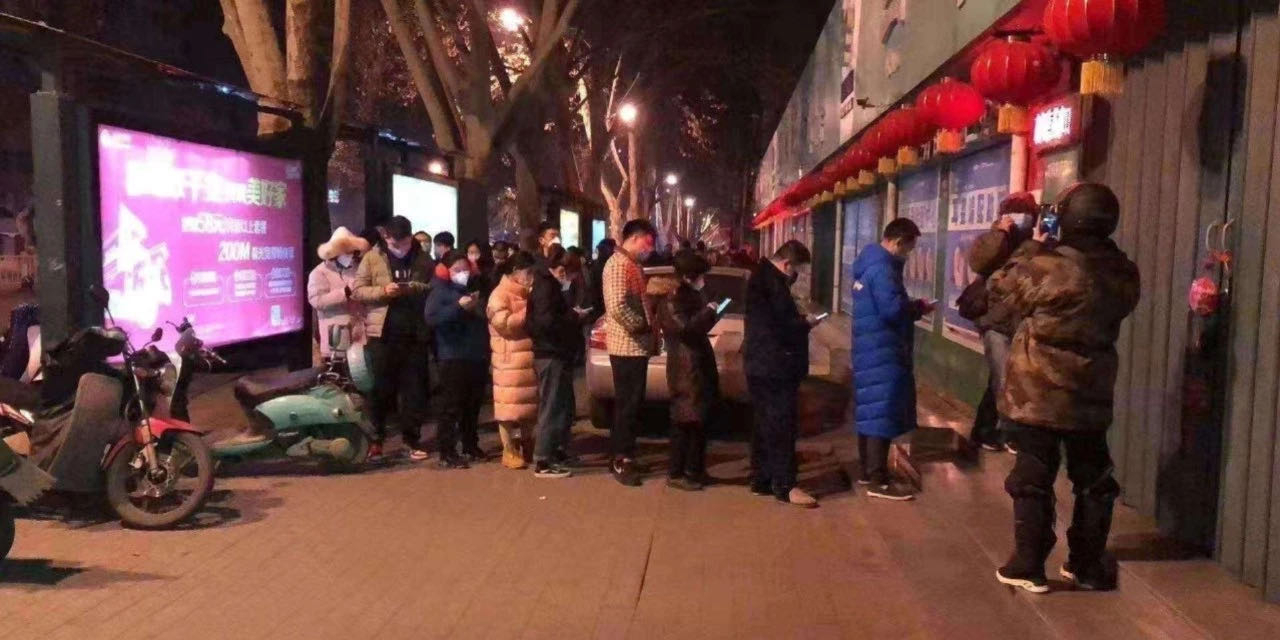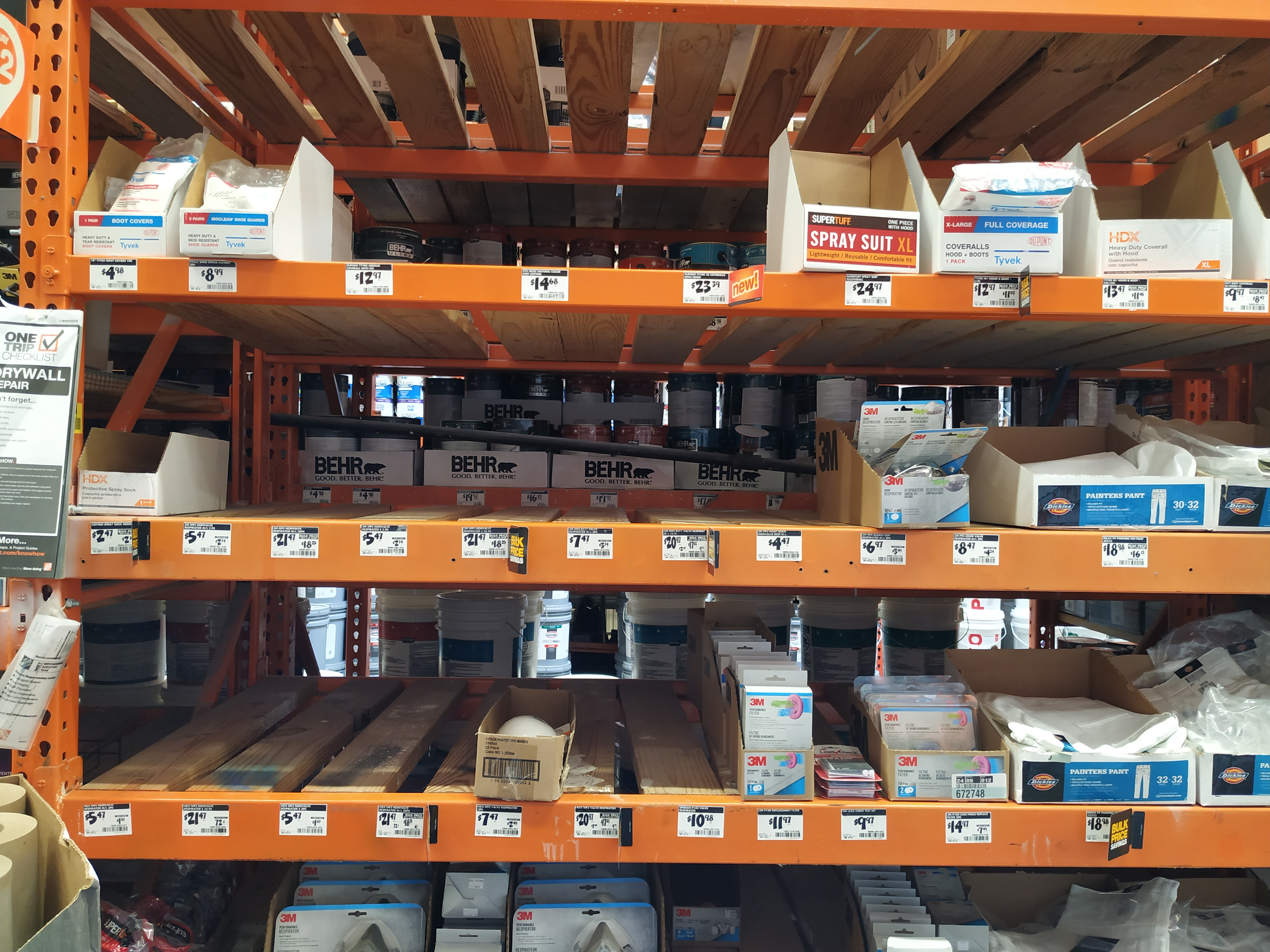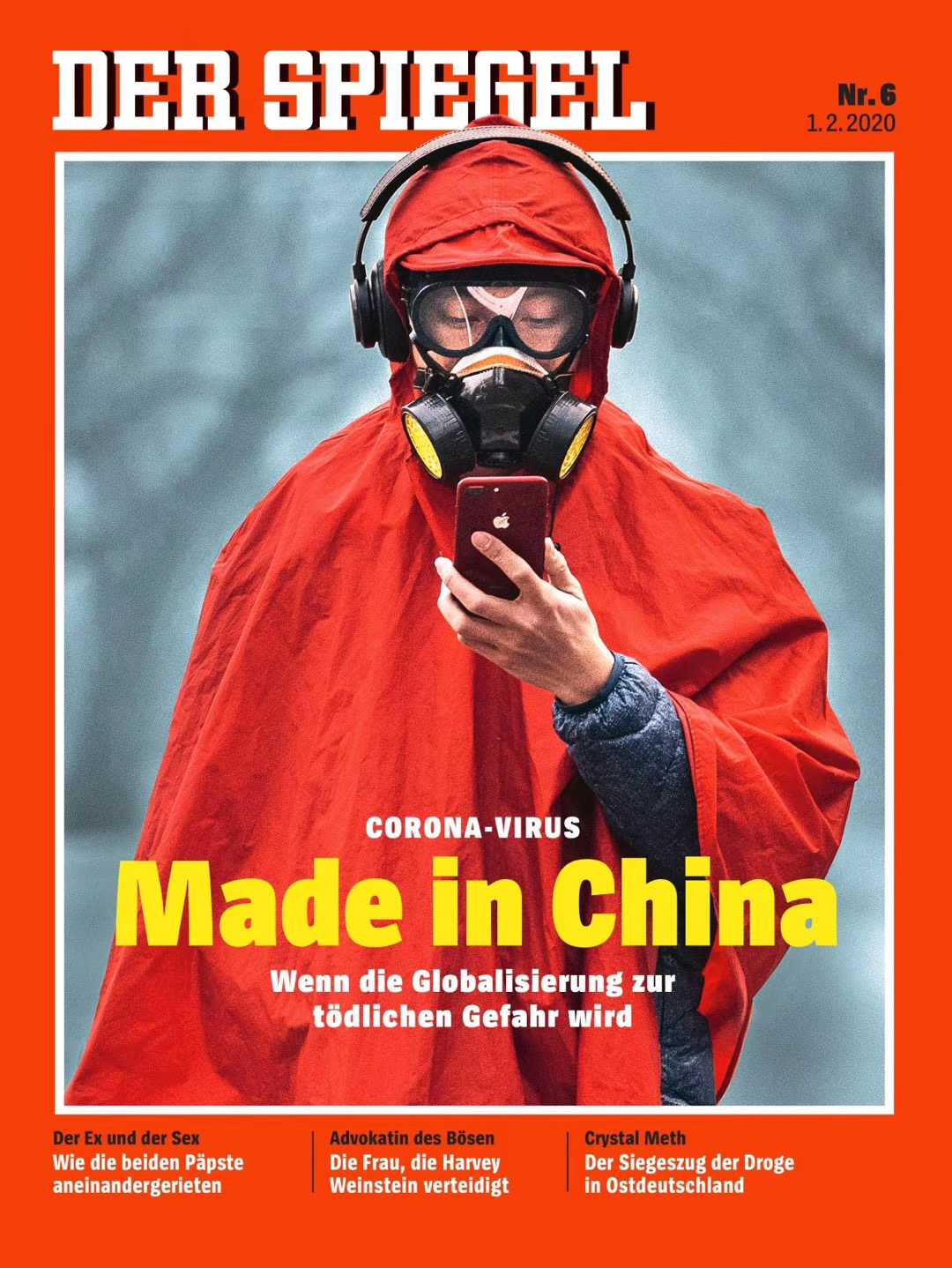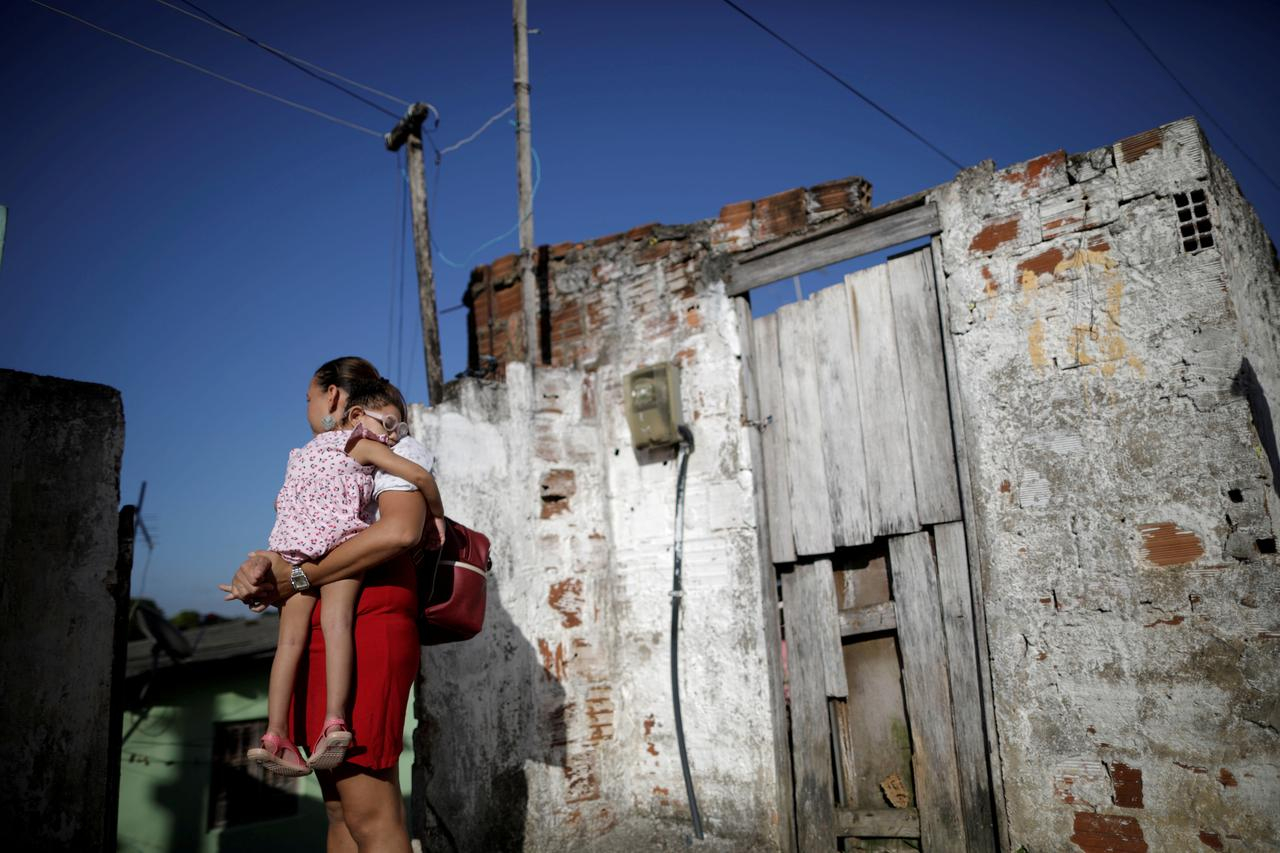It's been almost two weeks, but it's hard to see the lighter side to the novel coronavirus. Alarm grows, as news of coronavirus infections mingled with the deluge of conflicting information tumbles out on a daily basis.
Panic buying
A traditional Chinese medicine syrup – Shuanghuanglian – has become the latest commodity in the panic buying spree, on the heels of the frenzy over face masks. Sales of the concoction, a common treatment for cold and fever, exploded after Xinhua News Agency reported its effectiveness for the coronavirus citing findings from the Shanghai Institute of Materia Medica and the Wuhan Institute of Virology.
Snaking queues could be seen outside pharmacies in the ground zero of Wuhan and many other cities. The shopping spree – which also sent its online prices skyrocketing from 10 yuan to over 30 yuan in one night – temporarily abated when the World Health Organization (WHO) stated there's no cure so far for the virus.

People queue to stock up on the medicine on Friday night. /Photo via Weibo
People queue to stock up on the medicine on Friday night. /Photo via Weibo
As for face masks, that's a different story. After experts confirmed that the coronavirus could be transmitted between humans, health authorities have been urging people to stay home more and to wear surgical disposable masks or N95 respirators when they're outside. In a couple of days, such products and even their cheaper alternatives – cotton masks and air-filtering ones – were sold out. Some feel elated over getting a bulk purchase of this basic protective gadget at a prohibitive price. Such "indulgent" buying has also sprawled to hand sanitizers, thermometers, and staple food. Wei, a Chinese American who's anxious to buy masks for his family back in China, told CGTN that he scoured pharmacies and even home improvement stores in his part of town. He ended up snagging three N95 face masks. "Then I turned to Amazon and ordered a box at 70 U.S. dollars – about three times its usual price, only to receive a refund days later because the seller could not fulfill the order," he sighed.

Empty shelves for face masks in Home Depot near Houston, U.S. /Photo courtesy of Wei
Empty shelves for face masks in Home Depot near Houston, U.S. /Photo courtesy of Wei
From discrimination to racism
Panic has also fueled discrimination, as there are numerous reports of such cases against residents from Hubei Province – where Wuhan is located – and racism abroad against Chinese and other people of Asian descent. News outlets around the world have reported Chinese people being harassed or excluded. Signs at a Japanese shop and a restaurant in Vietnam saying Chinese people weren't welcome, for example, have invited outrage. Those who wear masks in public may face hostile attitudes, as they may seem out of place in western countries such as New Zealand and the U.S. where people don't generally wear masks.
Even reputable publications are pointing fingers at an entire group of people. On Saturday, Germany's Der Spiegel – the biggest-selling news magazine on the European continent – published an issue featuring the headline "coronavirus Made in China" on the cover.
A CNN analysis asserts that such overt forms of xenophobia, especially anti-Chinese memes like "Yellow Alert" and "New Yellow Peril," hark back to the SARS epidemic in 2003, when people of Asian descent received hate messages or real estate agents were told not to serve Asian clients.
But there are calls for rationality amid fear. For instance, Japan's Ministry of Education, Culture, Sports, Science and Technology (MEXT) is urging students and the wider communities to not discriminate against students returning from China.

Screenshot of the cover of Der Spiegel's latest issue on the website of the news magazine
Screenshot of the cover of Der Spiegel's latest issue on the website of the news magazine
An economic recession?
This fear became paramount when WHO designated the coronavirus as a Public Health Emergency of International Concern (PHEIC). Groundless rhetoric glutted social media platforms that a PHEIC label would isolate the Chinese economy and hence lead to an economic recession which could be worse than the consequences of the China-U.S. trade war. "My company can only sustain for two more months," a private firm owner said. There was a scarier "prediction": "The Chinese economy will go back to 20 years ago!"
"There's no denying that the Chinese economy will be affected, in particular because in the troika of investment, export and consumption – the first two have been dealt a blow given the spread of the coronavirus. Plus, consumption is losing steam as the service sector is being hit," said Jiang Rushan, an Asia studies fellow to Harvard Kennedy School, during a phone interview with CGTN.
Though the production chain has been interrupted with employees failing to come back to work as scheduled and impeded logistics operations, China has a supply stock that can be sustained for quite a while, Jiang said. "China's economy will likely see a robust rebound in the latter half of the year."

Gleyse Kelly da Silva, 28, holds her two-year-old daughter, Maria Giovanna, at their house in Recife, Brazil, August 8, 2018. /Reuters Photo
Gleyse Kelly da Silva, 28, holds her two-year-old daughter, Maria Giovanna, at their house in Recife, Brazil, August 8, 2018. /Reuters Photo
Li Yi has a more nuanced observation. The visiting scholar to the National Autonomous University of Mexico calls on people to stay composed while remaining at home. "WHO gave the first PHEIC tag to the H1N1 influenza that broke out in Mexico and the southern U.S. states of Texas and Florida in 2009, but the U.S. economy was not as hurt as expected," he told CGTN. Back then, the tourism sector in the U.S. remained bloated, and the flagging trade figures were more of a result of the financial crisis that originated in the country the previous year.
"Mexico's travel statistics in 2009 were bleak, but we have to know that the U.S. was the main source country of tourists to Mexico. With strained income due to the financial crisis, American tourists refrained from unnecessary trips," Li said.
Brazil offers a more pertinent example. In 2016, the Zika virus ravaged the largest country in Latin America, which was embroiled in an abyss of political turmoil. The virus was also designated a PHEIC by WHO, coming at an inopportune time as the upcoming Olympics were to be held in Rio de Janeiro - but doomsday predictions of the disease on its domestic economy didn't come true. The GDP even rose in 2017 after the end of Zika, after years of decline.
In times of crisis, it is easy to treat a country or people as scapegoat for something that is beyond their control. For this disease outbreak, paranoia stemming from misinformation and ingrained biases only fans tension. Instead, preventive measures should continue to be taken, and support given to health professionals and others who are actively working to battle this epidemic.